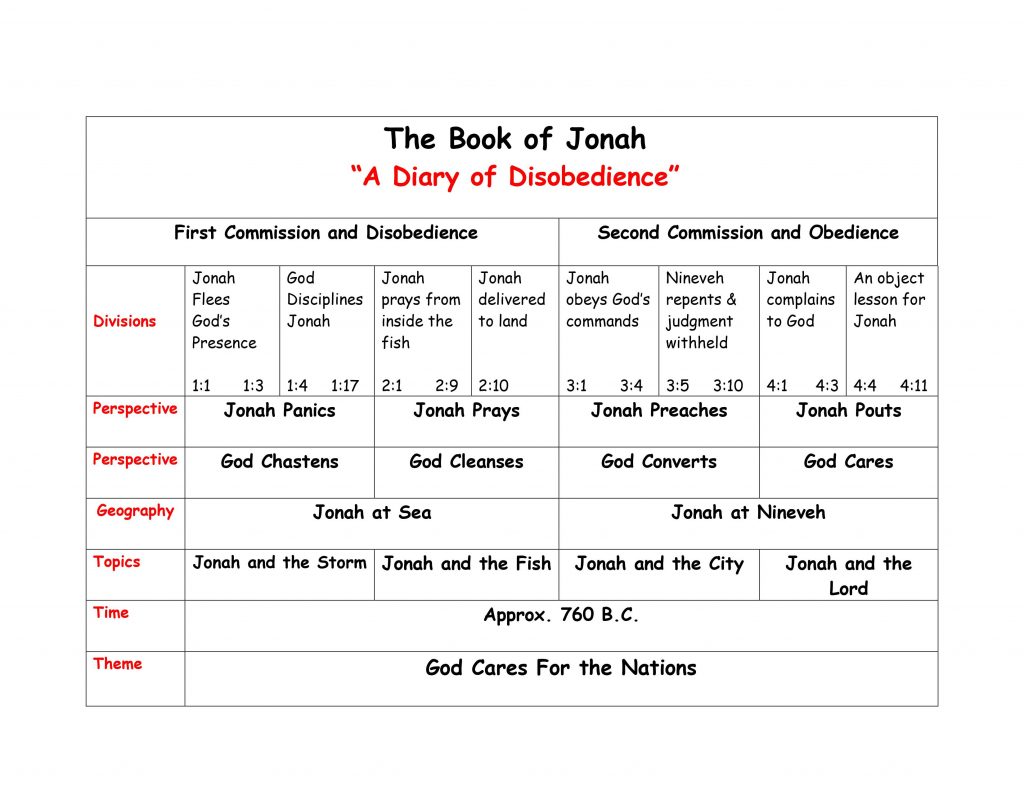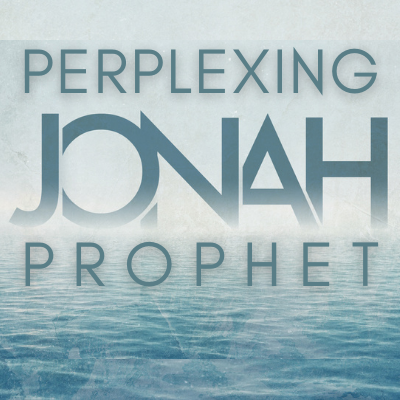TALKING POINTS / WALKING POINTS
Dig deeper into the message during the sermon, in your personal Bible study, or with your family or Community Group in application-driven discussion.
COMMUNITY GROUP LEADER’S GUIDE
SERMON SUMMARY
Old Testament prophets addressed timeless themes such as social justice, economic inequality, violence, war and peace, nationalism, prejudice, the meaning of love, fidelity and truth. The prophets served as the voice of Israel’s conscience; I fear that America today has lost its conscience. It is my conviction that some of the most serious problems facing us today are the result of our unfamiliarity with the prophets; the prophetic voice is much needed in our culture today. Today we’ll begin a look at the Prophet Jonah. Liberal scholars try to discredit Jonah as mere fiction, parable or allegory. But I believe it is an accurate account of actual history. Why? Several reasons: The Old Testament treats Jonah as a real person who lived and ministered (2 Kings 14:23-25). The book of Jonah bears the stamp of history, and until recently, never was questioned. It only began being questioned because of anti-supernatural presuppositions. Jesus regarded the book of Jonah as a record of history (Matthew 12:38-42). Jesus hinges His resurrection on the historicity of Jonah’s experience, and he exposes the real problem: it’s not one of the intellect, but of the will.

I call the book of Jonah “A Diary of Disobedience.” Jonah was the AWOL Prophet: when the book opens he is “absent without leave” and when it ends, he is “angry without love”. The book of Jonah nicely divides into two commissions. The first commission (chapters 1-2) begins in disobedience and ends in obedience while the second commission (chapters 3-4) begins in obedience and it ends in disobedience. The book of Jonah reveals a clash of wills: Jonah vs. God. Jonah panics, then he prays; he preaches, then he pouts. In response, God chastens and then cleanses Jonah and converts then cares for Jonah. The book of Jonah reveals five principles regarding the will of God:
[1] God will always reveal His will to the believing heart. Time and again we’ll see this as we study Jonah, and it is confirmed by Romans 12:1-2 and Proverbs 3:5-6. God is interested in, and completely capable of, revealing his plan.
[2] The will of God is found in the Word of God. Therefore, our task is to saturate our minds with the Word of God. After a while, we begin to think instinctively from a Biblical perspective. When God has revealed something in His Word, we don’t even have to pray about it! Problem is, we are always trying to substitute our will for God’s will, using our feelings as a justification.
[3] Ultimately, the issue for us is not God’s will, but our will. Our response to God’s will is what ultimately matters. Jesus said, “If anyone is willing to do His will, he will know of the teaching, whether it is of God or whether I speak from Myself” (John 7:17). God’s will is “good, acceptable and perfect” (Romans 12:1-2). God’s will is as good as God himself is. It can’t be improved upon. The Christian life is not so much about finding God’s will as it is following God’s person. We sign a blank page, trusting in God’s character, and then a good, loving, wise God fills in the details.
[4] The will of God is always an expression of the love of God. God sent Jonah to the Ninevites because he loved the Ninevites and because he loved Jonah. The book of Jonah shows the extent that God Almighty goes to communicate his love to this rebellious prophet.
[5] Disobedience to the will of God is always costly. People often talk about the cost of following the will God; I think it is time we start talking about the cost of not doing the will of God! We are going to see it spelled out in the life of Jonah! Many people regret their failure to do the will of God, but I have never had someone say, “I regret that I did the will of God.”
APPLICATION / CHALLENGE
The small but powerful Book of Jonah takes just ten minutes to read.
- This week, read it through as many times as you possibly can.
TAKE ONE STEP
Each week, write down one doable concrete step of obedience, small or large, that you will put into practice this week. (James 1:22: “But prove yourselves doers of the word, and not merely hearers who delude themselves.”)


